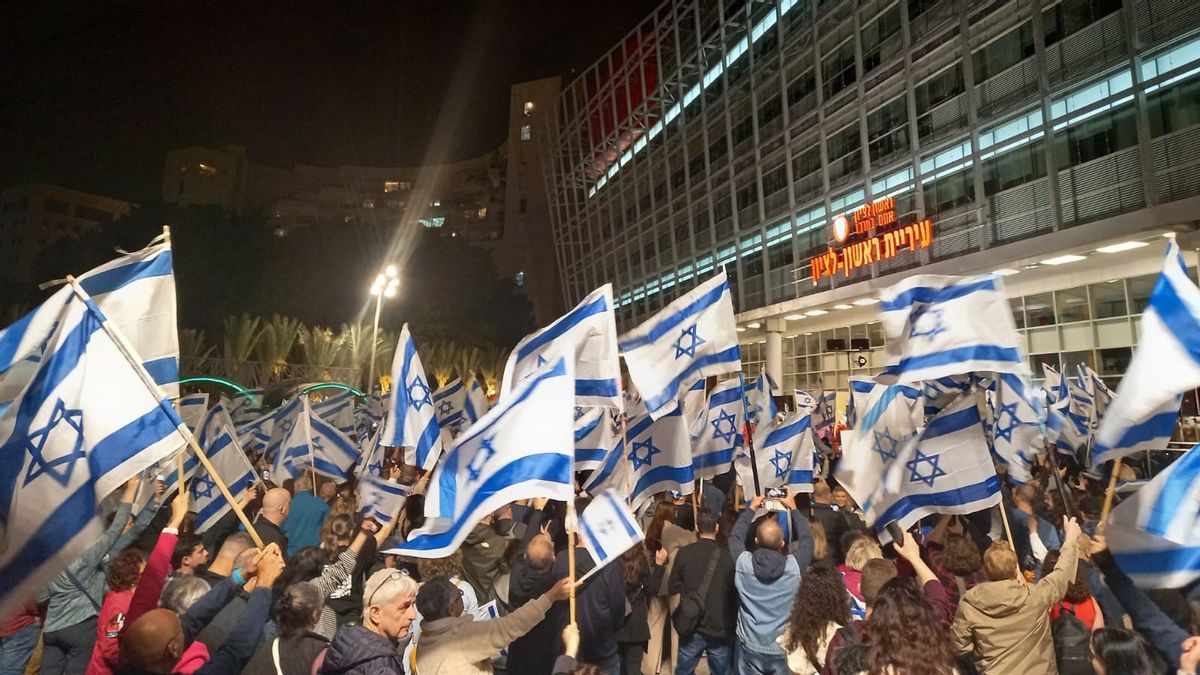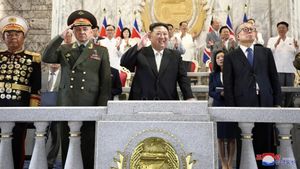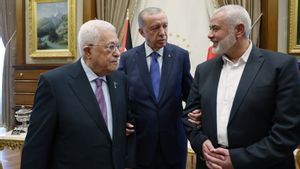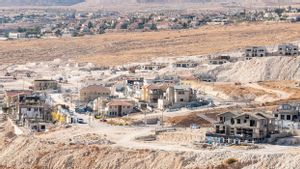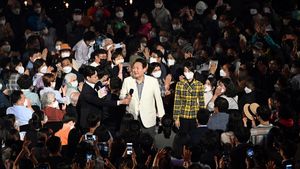JAKARTA - Prime Minister Benjamin Netanyahu said parliament's decision to cut down the power of the Supreme Court in order to waive the government's actions as part of a planned judicial reshuffle would not harm Israeli democracy.
PM Netanyahu's far-right government plans have sparked unprecedented months of protests, opening up deep divisions in Israeli society and tightening loyalty to several reserve soldiers.
In the seventh month, the crisis escalated on Monday after parliament passed the first amendment, cutting powers of the Supreme Court to rule out government actions and raising fears of court independence.
Speaking to ABC News, PM Netanyahu said amendments to one of Israel's Basic Laws, which serves as a formal constitution, were "small corrections" to "activists" courts.
"This is described as the end of Israeli democracy, I think it's ridiculous and when the dust subsides, everyone will see it," he said.
By the time PM Netanyahu ruled out the consequences of his plan, Israeli Air Force Commander Major General Aluf Tomer Bar, warned the crisis could be exploited by Israeli enemies.
"There is a possibility that at times like this they will try to test our borders, cohesiveness and vigilance. We must continue to be vigilant and ready, because I believe we will," Major General Bar said in a speech to his troops, according to a statement issued Friday.
On a separate occasion on CNN, PM Netanyahu declined to say whether he would comply with a potential Supreme Court ruling canceling Monday's amendment, the first part of the law in his government's judicial reshuffle plan.
Meanwhile, protest leaders said an increasing number of reserve troops had decided to stop serving, to express their opposition. The military itself has recognized increased demand for abstain from service.
Separately, political regulatory groups have appealed to the Supreme Court to overturn the new law, paving the way for clashes between government branches when they heard arguments in September.
The legal dispute will begin next Thursday, however, when a high court will hear an appeal against the ratified coalition bill in March, which limits the requirement to remove the prime minister from office.
VOIR éGALEMENT:
On the other hand, protesters said they would return to the streets. They accused Netanyahu of working to curb court independence, unilaterally changing the judicial system that harms secular liberals who used to be dominant.
PM Netanyahu said the changes would balance the branches of government. He threw protests as an attempt to thwart his democratic mandate.
It is known that PM Netanyahu's plans to hit the economy by withdrawing warnings from credit agencies, sparked the escape of foreign investors. The ongoing controversy has increased domestic political uncertainty, causing lower economic growth this year, according to a S&P Global Ratings report.
The English, Chinese, Japanese, Arabic, and French versions are automatically generated by the AI. So there may still be inaccuracies in translating, please always see Indonesian as our main language. (system supported by DigitalSiber.id)
